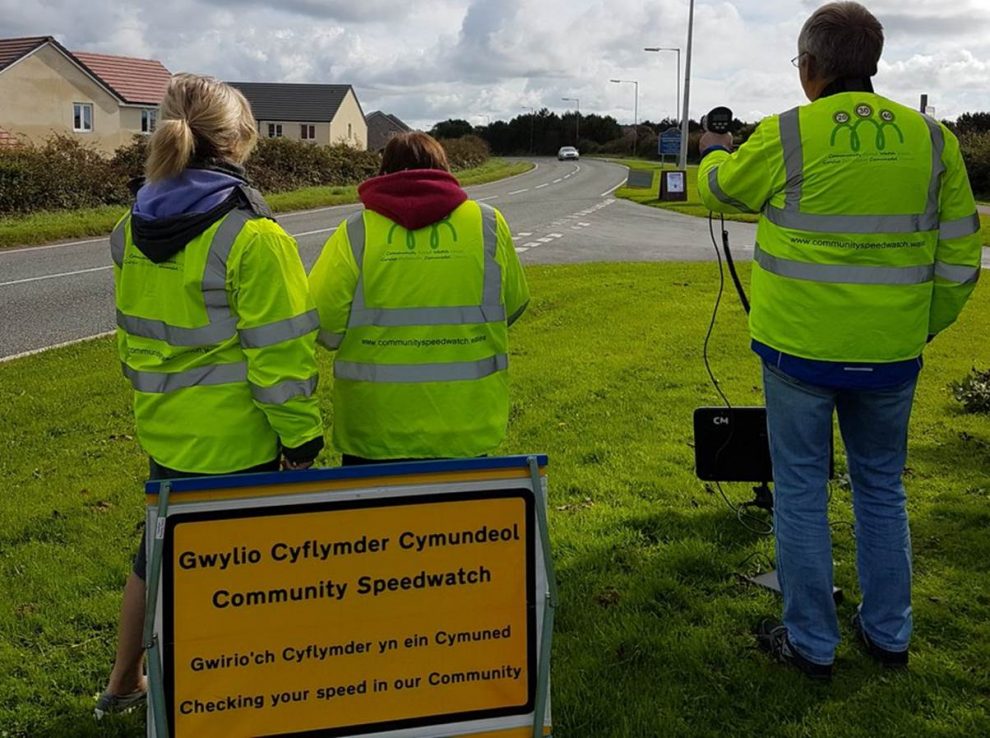A NEW report by a think tank has assessed the potential of a public development bank for Wales to boost lending to firms and promote economic development locally.
The report by the Public Policy Institute for Wales describes evidence that ‘bank branch closures are having a negative impact on individuals and businesses in Wales, but more specific research is need to ascertain what impact bank branch closures is having on individuals and communities. Finding out the extent to which vulnerable areas are affected by bank branch closures can also help identify which specific services can be provided in the future.’
The report states: “However, even the most extensive public banking model, opening community banks would not be able to replace the branches that have been closed in Wales in recent years.”
On ways to protect banking services it comments: “A public development bank is potentially useful option, but not a guaranteed solution.”
Plaid Cymru Mid and West AM Simon Thomas said: “We need action from Governments in Westminster and Wales on bank branch closures.
“It is unacceptable that the bank network is being stripped from rural Wales. We cannot have a gap in the banking services available to rural and urban Wales.
“Plaid Cymru’s Westminster leader Liz Saville Roberts has called for a change in the law to protect the last bank in town. We are now seeing often in our communities from Llandysul to Llanidloes towns left without a bank.
“While bank branches are expensive to maintain and are used by fewer people in the past they are still an important resource. The report highlights research by the Federation of Small Businesses that bank branch closures affect small businesses in rural communities, as they are more likely to require cash purchases than in urban areas.
“High street banks have a duty to consult effectively with the local community over closures. While banks are private companies making commercial decisions, in effect access to banking is essential for modern life and participating in democracy.”
“The Labour Government in Cardiff Bay should be looking at how other financial institutions like Finance Wales and credit unions have a role to play. Other ways to protect banking services for small businesses and individual customers like developing the services provided by the Post Office will be hampered by the closure programme of successive Westminster governments of different political colours.”
The report identifies problems with lending to small and medium sized businesses, automation has made banks more geographically and operationally distant from small businesses.
Bank closures contribute to this problem according to the Federation of Small Businesses.
Mike Cherry, FSB National Chairman, said: “The rapid pace of bank branch closures across the UK presents some very real and tough challenges for small businesses. FSB members highly value the face-to-face interaction they receive in-branch, particularly when making complex financial transactions, with staff who often have a greater understanding of their business and the local economy. In addition, many of our members deal heavily in cash and cheques and need access to over-the-counter banking facilities on a regular basis.
“Small businesses are keen to embrace the opportunities of the digital economy. However, barriers towards digital inclusion, such as unreliable broadband connectivity, and a lack of confidence in using digital services creates serious challenges. These are some of the reasons which explain why the protection of in-branch banking is so important for financial inclusion.”
Large banks were three times more likely to shut a branch in Wales than in London and the south east of England, and five of the top ten areas affected by the 600 branch closures in Britain in 2015-2016 were in Wales – Powys, Denbighshire, Gwynedd, Conwy, and Carmarthenshire.
The FUW is particularly concerned as internet banking is not always an option in rural areas; many people will not have an appropriate internet connection- if they have a connection at all, and especially the elderly may not be familiar with IT and the process of doing their banking online.
Speaking earlier this summer, FUW President Glyn Roberts said: “The closure of rural banks has a detrimental effect on rural areas, as they serve not only villages and small towns but many of the neighbourhoods in surrounding areas, as well as providing employment to local people.
“Closures are a great loss to residents and local businesses, particularly the elderly or residents who are unable to travel to the nearest town. The closures will of course also affect small businesses, as they will have to travel further afield for their banking needs.
“In addition, internet banking is not always an option in rural areas; many people will not have an appropriate internet connection if they have a connection at all, and especially the elderly may not be familiar with IT and the process of doing their banking online.
“For many telephone banking is impractical, as they prefer to deal with their personal finances on a one-to-one basis and mobile banking is limited in many rural areas. It is worth considering as well that some people may not be able to get to mobile banks during the short time they are present in villages.
“With more and more rural services and businesses being closed down, we must also acknowledge that it is becoming less and less attractive for young families and indeed business owners to remain in the countryside.
“If the problem of rural depopulation is not addressed with some urgency it could have severe consequences for our rural communities and with that also our rural economy.
“It is clear that if we want to ensure that Wales develops its full potential in being a rural economic powerhouse, we must make it attractive for working families to stay and also encourage vital services like business banking to remain available in our countryside.
“The provision of acceptable broadband services is an increasingly critical part of meeting the needs of rural Wales.”
A report from the British Infrastructure Group found nearly a quarter of Welsh constituencies appear in the worst 20 constituencies in the whole of the UK for broadband speed.

















